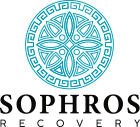Overcoming alcohol addiction is a significant achievement, but many people are surprised by the lingering exhaustion that follows. If you’ve recently stopped drinking, you may be wondering how long the post-alcohol fatigue lasts. This phase, often referred to as sobriety fatigue, is a common part of the recovery process. Understanding why it happens and how to manage it can make your transition to a healthier lifestyle much smoother. Sophros Recovery can help by offering support through our aftercare program.
What Is Post-Alcohol Fatigue?
Sobriety fatigue is the overwhelming tiredness that many individuals experience after quitting alcohol. It occurs because alcohol has a profound effect on the body’s nervous system, sleep cycles, and energy levels. When you stop drinking, your body needs time to readjust and heal, which can lead to feelings of exhaustion, brain fog, and low energy.
Some of the main causes of sobriety fatigue include:
- Disrupted sleep patterns: Alcohol disrupts REM sleep, and it can take weeks or months for your body to regulate a natural sleep cycle.
- Nutritional deficiencies: Chronic alcohol use depletes essential vitamins and minerals, which can impact energy levels.
- Detox and withdrawal: The withdrawal phase can place a significant strain on the body, leading to prolonged fatigue.
- Hormonal and neurotransmitter imbalance: Alcohol affects neurotransmitters like dopamine and serotonin, which regulate mood and energy.
Addressing fatigue after quitting alcohol requires patience and self-compassion, as your body takes time to heal and adjust.
How Long Does Sobriety Fatigue Last?
The duration of sobriety fatigue varies depending on factors such as how long you drank, your overall health, and how well you care for your body post-recovery. However, here is a general sobriety fatigue timeline:
First Few Days (0-7 Days)
Intense withdrawal symptoms, including persistent insomnia, heightened anxiety, and overwhelming fatigue, are common and can significantly impact a person’s physical and emotional well-being during the recovery process.
First Month (1-4 Weeks)
Your body is still adjusting, which can take some time. You might notice your sleep quality starting to improve as your body settles into a new rhythm, but don’t be surprised if your energy levels fluctuate throughout the day. This is completely normal as your system adapts, and over time, you’ll likely feel more balanced and consistent.
Months Two to Three (5-12 Weeks)
Many people report feeling more stable as they adjust, experiencing a sense of balance and consistency in their daily routines. However, occasional bouts of exhaustion may persist, often arising unexpectedly and leaving individuals needing extra rest or recovery time to regain their energy.
Beyond Three Months
By now, most people start regaining energy and feeling more stable in their recovery. This is an encouraging phase with noticeable improvements in physical and mental clarity. However, some may experience post-acute withdrawal syndrome (PAWS), which includes fatigue, mood swings, and other symptoms that can last weeks or even up to a year. PAWS occurs as the brain adjusts to life without substances and can vary in intensity, making support and self-care essential during this time.
If you’re in Florida and struggling with the exhaustion that comes after quitting alcohol, seeking support through Sophros Recovery’s alcohol rehab in Jacksonville, FL, can provide valuable guidance during your recovery.
How to Combat Post-Alcohol Fatigue
Managing post-alcohol fatigue requires a combination of good sleep, proper nutrition, and stress reduction. Prioritizing a consistent sleep schedule can help regulate your body’s natural rhythms and improve energy levels. Eating a balanced diet rich in vitamins and minerals will aid in replenishing the nutrients lost during prolonged alcohol use. Staying hydrated is also crucial, as dehydration can contribute to sluggishness and brain fog. Engaging in light exercise, such as walking or yoga, can boost energy without overwhelming your system. Reducing stress through meditation, deep breathing, or journaling can further ease mental and emotional fatigue.
If exhaustion persists, seeking professional guidance from a healthcare provider or a recovery program can provide additional support to help you regain energy and stability. Seeking professional help for sobriety fatigue can be a transformative step toward long-term wellness. Trained professionals can provide personalized strategies and tools to address both the physical and emotional challenges of recovery. They offer a comfortable and supportive environment to explore underlying causes of fatigue, ensuring that you are not navigating this journey alone. With their guidance, you can build resilience, restore balance, and reclaim a sense of vitality and purpose in your life.
Call Today to Start Our Aftercare Program
If you’re feeling drained after quitting alcohol, know that this phase is temporary. The timeline varies from person to person, but with time, patience, and proper self-care, your energy levels will improve. Recovery is a journey, and taking proactive steps will help you feel stronger every day.
For those looking for additional support, Sophros Recovery in Jacksonville offers expert guidance to help navigate post-alcohol recovery challenges. Call 866.374.0541 or connect with us online today to get the care you need.







